Investor's Corner
Tesla Locks Up Lithium Supply for its Gigafactory
Tesla has signed a deal with two companies to supply it with lithium for its GigaFactory at below market prices for 5 years. The lithium comes from Mexico.
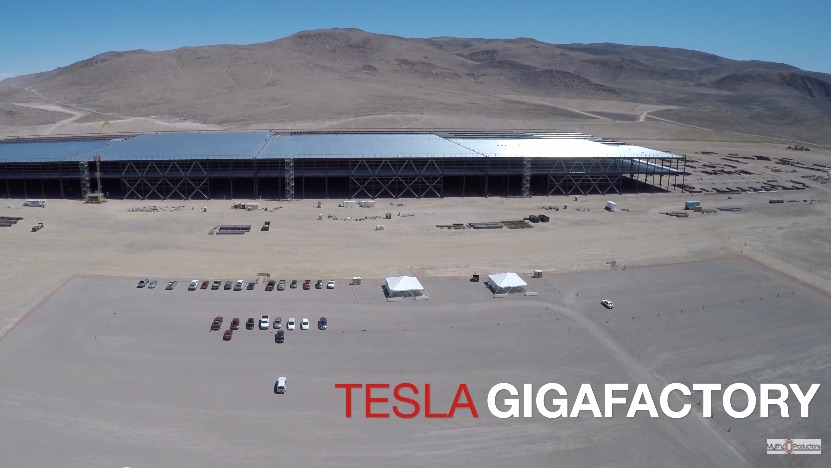
Tesla has taken steps to lock up a guaranteed supply of lithium for the next five years
Bacanora Minerals Ltd. and Rare Earth Minerals PLC, have formed a partnership called the Sonora Lithium Project Partners to mine lithium from clay deposits in northern Mexico which will become a key supplier of lithium for Tesla, at below market rates over the next 5 years. Currently, the United States imports 80% of the lithium it needs, most of it from Bolivia and other countries in South America.
Tesla will need an assured supply of lithium at a guaranteed price in order to fulfill its pledge to make 35 gigawatt-hours of batteries annually, after construction of the Gigafactory is complete. The mine and processing facility are expected to have an initial capacity of 35,000 tons of lithium compounds which can be increased to 50,000 tons if needed to satisfy Tesla’s requirements.
Researchers at the University of Wyoming have identified a large deposit of lithium-rich brine in the Rock Springs Uplift, a geological feature in southwest Wyoming. Tests suggest the 25 square mile area could contain 228,000 tons of lithium. That’s enough to meet annual U.S. demand and is almost twice as much as the reserves at Silver Peak in Nevada, which is currently the largest lithium producing area in the US.
>>>> MUST SEE: Drone video reveals newly constructed walls at Tesla Gigafactory
That find might benefit Tesla’s domestic competitors. The researchers say the Rock Springs Uplift area could produce lithium at well below current world prices from its geologically rich elements critical to lithium production. Making lithium from brine requires large quantities of soda ash (sodium carbonate). The largest US supply of soda ash is located less than 30 miles away.
In addition, the Rock Springs brine is unusually low in magnesium, an impurity that must be removed before processing can begin. Less magnesium means lower costs. Finally, the brine is trapped deep in the ground, where pressures and temperatures are already near those required by the lithium production process. Normally, the brine must be heated and pressurized before lithium can be extracted from it. Operators might be able to eliminate this step entirely, resulting in significant cost savings.
Industry observers say the transition to electric cars by mainstream drivers likely won’t occur until battery prices fall below $100 per kilowatt-hours. Access to less expensive lithium will be a big part of making that happen.
Source: WSJ

Investor's Corner
“Nothing Magnificent about Tesla (TSLA),” claims Jim Cramer
Cramer shared his thoughts about the matter in a comment to CNBC.
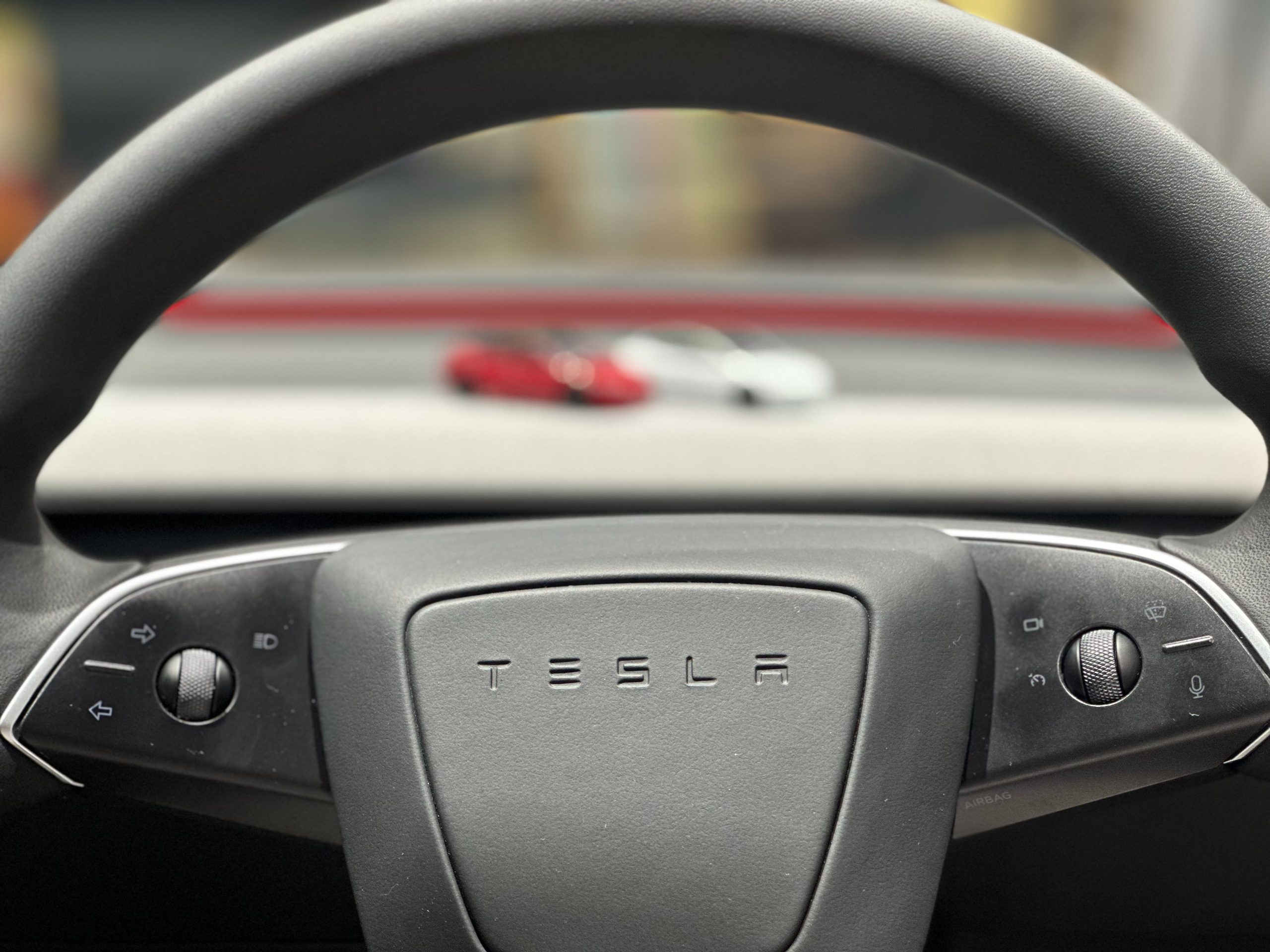
Tesla (NASDAQ:TSLA) is one of the stocks in the “Magnificent Seven,” which is comprised of U.S. tech companies that have driven notable market growth. But as per finance veteran Jim Cramer, electric vehicle maker Tesla no longer qualifies for the group’s moniker.
Cramer shared his thoughts about the matter in a comment to CNBC.
Not “Magnificent” Anymore
The Magnificent Seven (Mag 7) stocks are comprised of Apple, Microsoft, Amazon, Alphabet, Meta Platforms, Tesla, and Nvidia. The companies are known for their large market caps, innovation, and domination in their respective fields. As per Cramer in his recent comments, however, there are essentially no Mag 7 stocks anymore amid the fallout of U.S. President Donald Trump’s tariffs.
“You can buy some low multiple techs, industrials, and banks here. We did that for the charitable trust today, right under the teeth of the selloff. I would not jump back into the Magnificent 7 because, as of tonight, there is no ‘Mag 7’ anymore. I came up with that name, and I’m scrapping it right now — no moniker fits the two or three that remain viable. And I’m not going to put it out there — there’s nothing magnificent about Tesla or Nvidia,” Cramer noted.
Trump Tariffs
Donald Trump’s tariffs are expected to affect a variety of industries, including automakers like Tesla. Despite this, Tesla’s domestic factories such as Gigafactory Texas and the Fremont Factory should shield Tesla to some degree. As per TD Cowen analyst Itay Michaeli, “Tesla (is) a relative beneficiary given [its] 100% U.S. production footprint, substantial U.S. sourcing, and with Model Y competing in a midsize crossover segment where close to ~50% of vehicles could be subject to tariffs.”
Elon Musk, however, has noted that the effects of Trump’s tariffs to Tesla are no joke. “To be clear, this will affect the price of parts in Tesla cars that come from other countries. The cost impact is not trivial,” Musk wrote in a post on X.
Investor's Corner
BYD to overtake Tesla in BEV sales this 2025: Counterpoint Research
Counterpoint’s insights were shared by the market researcher on its official website.
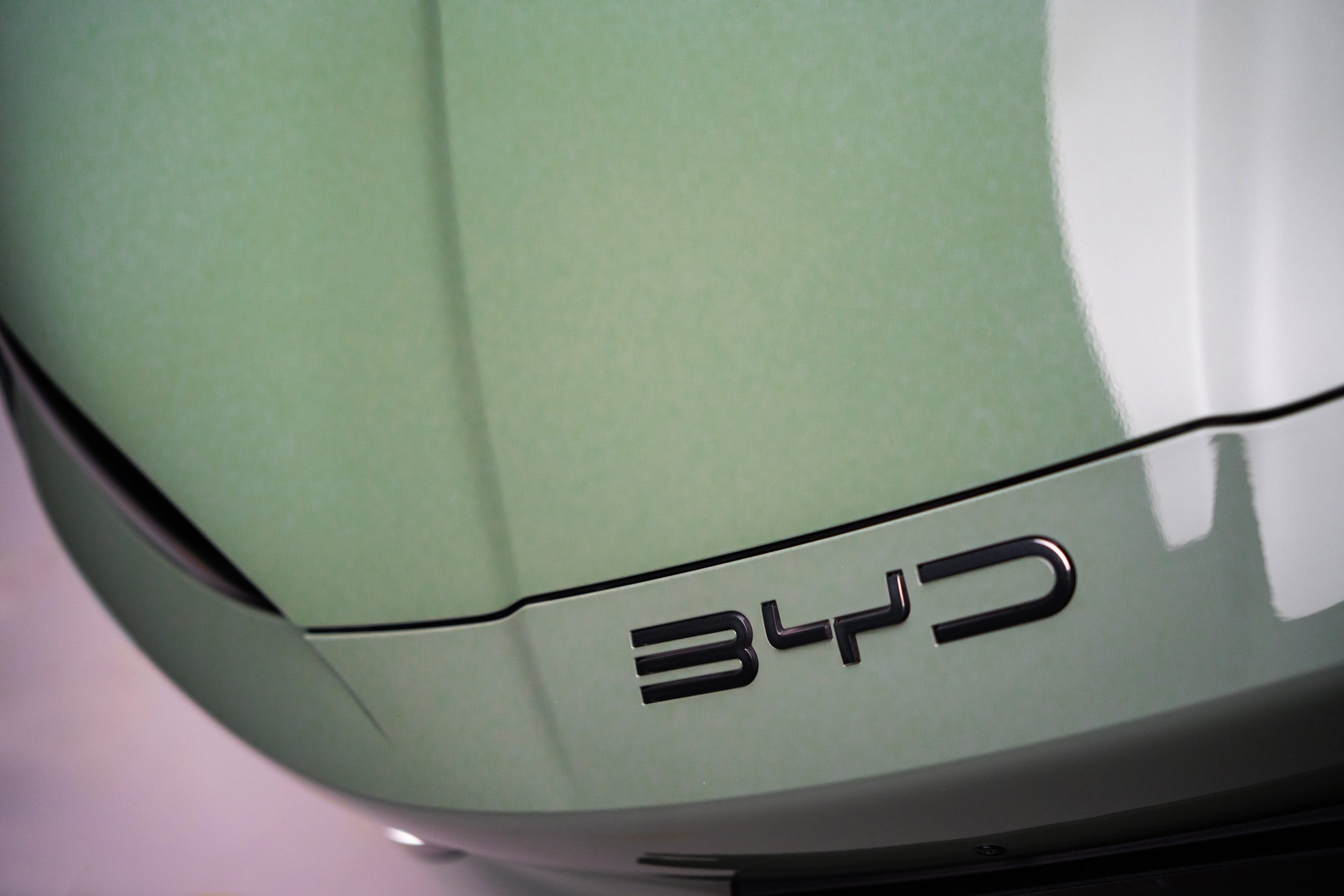
Counterpoint Research has estimated that Chinese automaker BYD will be able to overtake American electric car maker Tesla in Battery Electric Vehicle (BEV) sales this 2025.
Counterpoint’s insights were shared by the market researcher on its official website.
The (Counter)Point
Counterpoint Research’s latest Global Passenger EV Forecast suggests that BYD will be capturing a 15.7% global market share this year. This is expected to be driven by scale, innovation, and strong backing from the Chinese government.
The market researcher highlighted a number of factors that could help BYD become the world’s premier BEV maker this year. These include the company’s 1,000-kW ultra-fast charging technology and 10C charging rate batteries, which exceed Tesla’s current Supercharger offerings.
“The system can deliver 400 km of range in just 5 minutes, setting a new industry benchmark, far outpacing Tesla’s Supercharger, which adds about 275 km in 10 minutes. This technological leap is expected to significantly ease consumer concerns around charging time and boost EV adoption by reducing charging anxiety,” Abhik Mukherjee, Research Analyst at Counterpoint, stated.
The Tesla Factor
Counterpoint argued that Tesla, in comparison, is confronting several challenges, from damaged public perception due to CEO Elon Musk’s politics to geopolitical tensions between the United States and key markets like China. The market researcher highlighted Tesla’s soft sales in Europe and other markets, though it did not seem to consider the company’s changeover to the new Model Y across its global factories in Q1 2025.
“CEO Elon Musk has scored somewhat of an own goal against Tesla, and we are about to catch a glimpse of how much the company’s sales were hurt in Q1 2025. This is a big opportunity for BYD and if they deliver on the fast-charging promise, this could be the turning point for BYD and the China BEV story globally,” Counterpoint Associate Director Liz Lee stated.
Not the First Forecast
As noted in a CNEV Post report, this is not the first time that Counterpoint has predicted that BYD will overtake Tesla’s BEV sales. Last July, the market researcher expected BYD to overtake Tesla in 2024 to become the world’s top BEV maker. Tesla still beat BYD’s BEV sales at the end of 2024, however, with the American EV maker delivering a total of 1,789,226 vehicles globally versus the Chinese automaker’s 1,764,992 units.
In Q1 2025, however, BYD does seem to have momentum. BYD sold 416,388 passenger BEVs in the first quarter. As per Tesla’s Q1 vehicle delivery and production report, the company was able to deliver a total of 336,681 vehicles in the first quarter of 2025.
Elon Musk
Tesla bull Wedbush responds to Q1 deliveries: ‘A disaster on every metric’
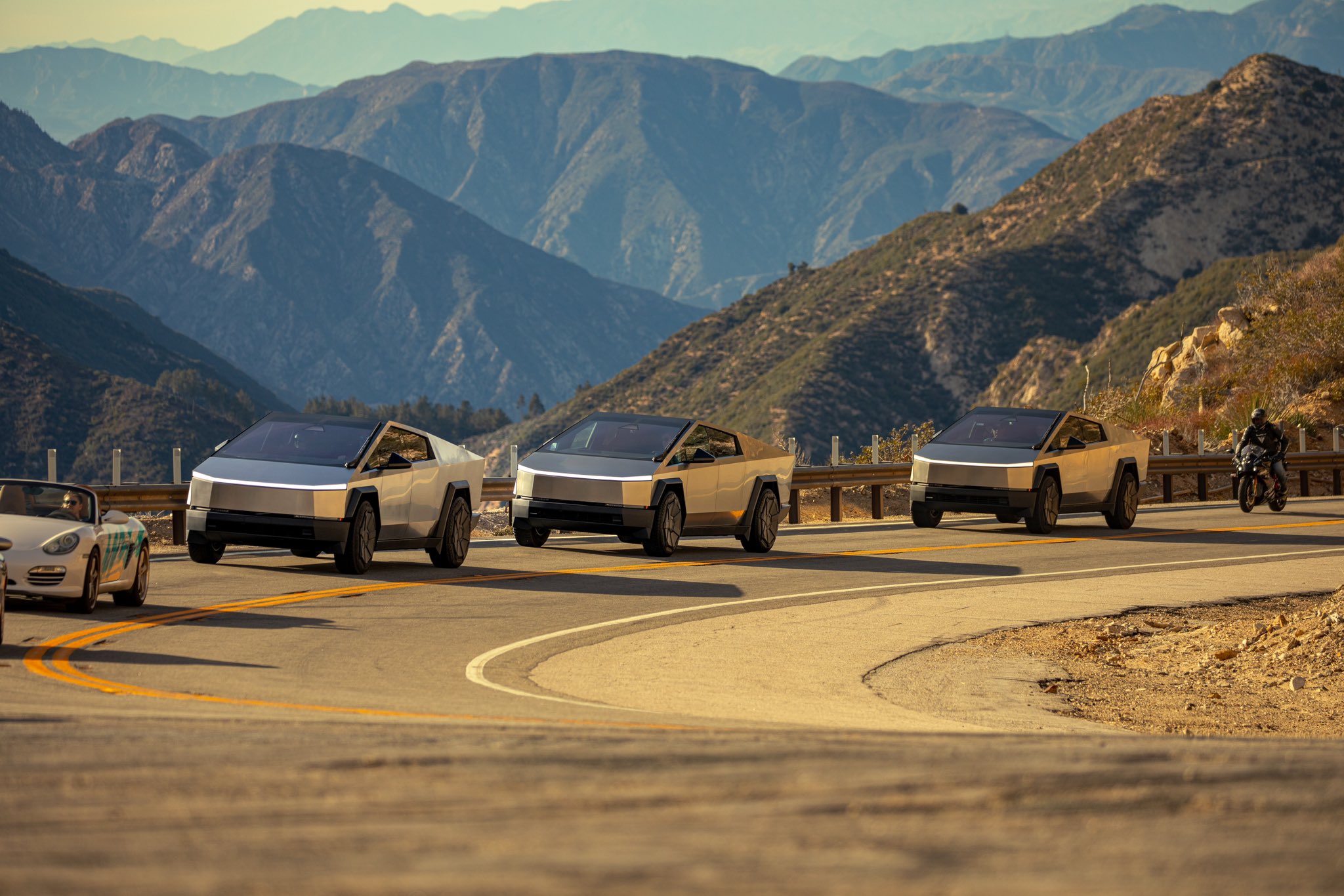
Tesla bull Wedbush has responded to the company’s lackluster Q1 delivery figures, which were released on Wednesday morning in a new note from analyst Dan Ives.
Tesla reported deliveries of 336,681 vehicles in the first quarter of the year, a far cry from the Wall Street estimate of 352,000 and whisper numbers of roughly 350,000. At first glance, it seems to be a disaster, but Tesla said it lost “several weeks of production” in Q1 due to the ramp of the new Model Y at all four of its vehicle production factories.
This could be part of the reason that the company experienced a quarter of this performance, but there are also factors stemming from CEO Elon Musk’s involvement in the U.S. government, which has created some pushback in various markets.
It’s tough to say how much of each issue caused this type of quarter, but Ives wrote in a note to investors that Wedbush could not look at this “with rose-colored glasses,” as the performance “was a disaster on every metric.”
Ives believes it is time for Musk to make a move:
“The Street and us knew a bad 1Q was coming but this was even worse than expected. The time has come for Musk….it’s a fork in the road moment. The more political he gets with DOGE the more the brand suffers, there is no debate. This quarter was an example of the damage Musk is causing Tesla. This continues to be a moment of truth for Musk to navigate this brand tornado crisis moment and get onto the other side of this dark chapter for Tesla with much better days ahead.”
Interestingly, the stock dropped over 5 percent after the delivery report. It quickly rebounded 8 percent and is currently up over 5 percent on the day after a report from Politico stated that Musk and President Donald Trump have discussed the CEO stepping back from the Department of Government Efficiency (DOGE).
Based on that, it seems that investors were looking for Musk to step back from his government duties and show more public attention to Tesla. Realistically, we do not know how much of his time is being devoted to Tesla and its EV initiative. However, it seems investors were ready to hear something along the lines of Musk being more involved and speaking openly about Tesla and its projects.
It’s not all bad. Ives still recognizes Tesla’s prowess with the rollout of robotaxi and Full Self-Driving and how much impact it could have moving forward:
“Autonomous remains the biggest transformation to the auto industry in modern-day history and in our view, Tesla will own the autonomous market in the US and globally with the launch of unsupervised FSD in Austin kicking off the autonomous era at Tesla that we value at $1 trillion alone on a sum-of-the-parts valuation…”
With that being said, he also wants Musk to balance responsibilities with DOGE and Tesla:
“BUT…Musk needs to stop this political firestorm and balance being CEO of Tesla with DOGE. The future is so bright but this is a full blown crisis Tesla is navigating now and its primarily self-inflected. We remain firmly bullish on the long-term Tesla story but Musk needs to get his act together or else unfortunately darker times are ahead for Tesla.”
Tesla shares are trading at $283.01, up 5.42% at 1:57 p.m. on the East Coast.
-
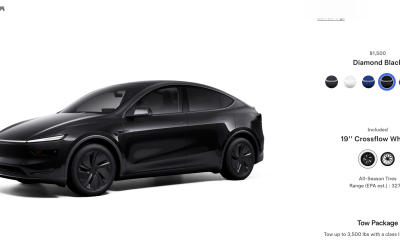
 News2 days ago
News2 days agoTesla rolls out new, more affordable trim of the Model Y Juniper in U.S.
-

 Elon Musk2 weeks ago
Elon Musk2 weeks agoTesla CEO Elon Musk’s simple message to vandals
-

 News4 days ago
News4 days agoTesla shares Optimus’ improved walk in new update video
-

 Elon Musk1 week ago
Elon Musk1 week agoTesla vandal who lit Las Vegas repair center on fire arrested
-

 Elon Musk1 week ago
Elon Musk1 week agoElon Musk clarifies Trump tariff effect on Tesla: “The cost impact is not trivial”
-
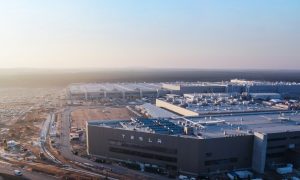
 News2 weeks ago
News2 weeks agoTesla’s Giga Berlin director responds to anti-Musk criticism
-

 News1 week ago
News1 week agoTesla US Gigafactories shields from Trump’s 25% Tariffs
-
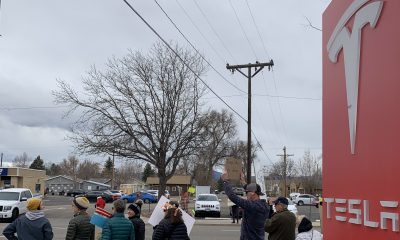
 Elon Musk1 week ago
Elon Musk1 week agoTesla vehicles hit by ATV, suspect caught by Sentry Mode








